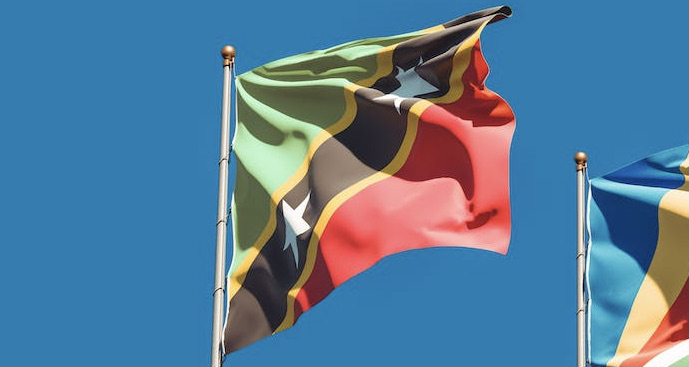Saint Kitts and Nevis High Court strikes down anti-gay law
High Court Judge Trevor Ward ruled anti-sodomy laws “null and void and of no force.”

Words: Emily Maskell; pictures: Pexels
A High Court has ruled that the colonial-era law banning same-sex relations in Saint Kitts and Nevis is unconstitutional and has been immediately overturned and struck from the Caribbean country’s legal code.
The Court upheld the claim brought forward by Jamal Jeffers, with the support of the Eastern Caribbean Alliance for Diversity and Equality, that Sections 56 and 57 of the Offences Against the Person Act (which criminalised “buggery”) violated the right to privacy and freedom of expression.
Jeffers, a gay man himself, had challenged the country’s anti-sodomy laws last year alongside Saint Kitts and Nevis Alliance for Equality (SKNAFE) but this ruling from the St Lucia-based court sees a landmark victory.
Following the historic judgment in Orden David et al v AG of Antigua and Barbuda, St Kitts and Nevis’ High Court followed suit in Jamal Jeffers v AG of St Christopher and Nevis in decriminalising consensual same-sex acts. A great day for human rights in the Eastern Caribbean. pic.twitter.com/OUvUZzpm1k
— J’Moul Francis (@jmoulfrancis) August 30, 2022
High Court Judge Trevor Ward stated that the aforementioned sections of the 1873 anti-sodomy law infringe upon the “right to determine the way they, as individuals, choose to express their sexuality in private with another consenting adult.”
“To the extent that it criminalises the private lives of gay persons in this year, the law is excessive and arbitrary,” Ward continued, ruling that those laws from now on are “null and void and of no force.”
The ruling was countered by the local government who unsuccessfully argued that sexual orientation was not referenced or covered by freedom of expression guarantees, Al Jazeera reports.
Many, however, were delighted at the news of Saint Kitts and Nevis’ anti-gay law repeal.
“This decision strongly establishes that a person’s sexuality should never be the basis for any discrimination. We welcome the recognition of this fact, one for which we have long advocated,” said Tynetta McKoy, the executive director of SKNAFE.
“We have achieved history,” said Kenita Placide, the executive director of the Eastern Caribbean Alliance for Diversity and Equality. “An affirmative decision means a yes to privacy and a yes to freedom of expression.”
Reacting to the news, Luisa Cabal, UNAIDS Regional Director for Latin America and the Caribbean, shared that the “landmark ruling” is an important step “in ensuring equality and dignity for the lesbian, gay, bisexual, and transgender community in St. Kitts and Nevis and the whole Caribbean.”
Great news!
St Kitts and Nevis becomes the latest country to declare that laws that have criminalized LGBT people are unconstitutional.
Read our statement 👉🏾 https://t.co/Q2s2qtmmZk pic.twitter.com/P9AyDPpEnW
— UNAIDS (@UNAIDS) August 30, 2022
Cabal also added that everyone benefits from this decriminalisation: “Today, St. Kitts and Nevis joins a growing list of Caribbean nations that have overturned these colonial-era laws that deny people’s human rights and hold back the response to the HIV pandemic.”
Cabal continued to state that “the clock is ticking on these damaging colonial laws,” adding that countries that have not yet taken off the anti-LGBTQ+ laws must do so “as a matter of urgency, for the health and human rights of all their people.”
This ruling in Saint Kitts and Nevis follows a similar High Court overruling for Antigua and Barbuda in July as well as courts in Belize and Trinidad and Tobago which have also repealed sections of legislation that criminalised same-sex relations.
Barbados, Dominica, Grenada, Guyana, Jamaica, Saint Lucia, Saint Vincent, and the Grenadines all still have colonial originating laws that are yet to be repealed.
The Attitude September/October issue is out now.

